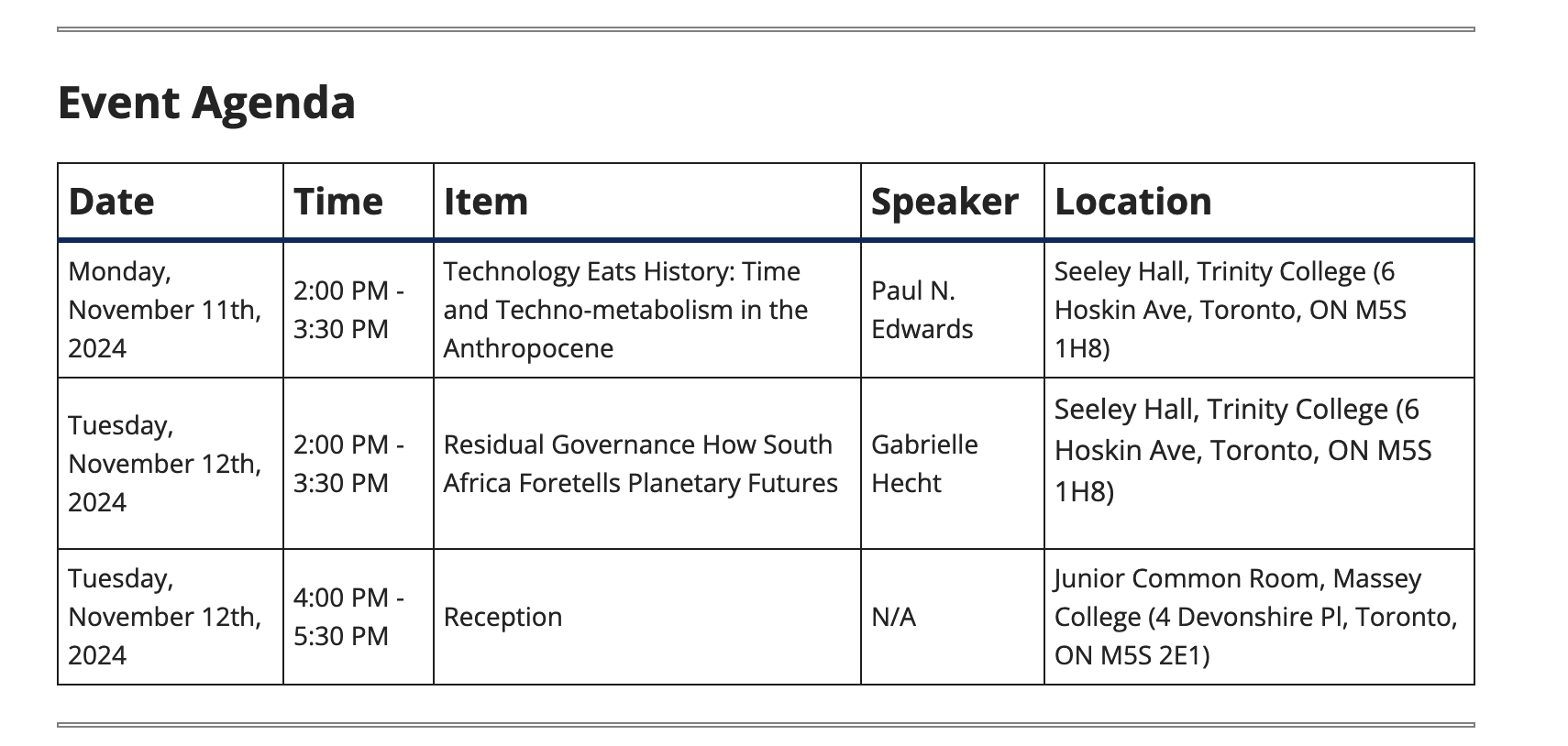Technology Eats History: Time and Techno-metabolism in the Anthropocene
When and Where
Speakers
Description
Technology Eats History: Time and Techno-metabolism in the Anthropocene
In-person event
What we call “technology” today involves intensely concentrated metabolic processes, ingesting and transforming energy and materials on a planetary scale. Techno-metabolism also concentrates and compresses time. Its temporalities include Earth's bio-geophysical past, the Holocene epoch since the last ice age, the 18th-20th century Industrial Revolutions, and the Great Acceleration since 1950 (globalized trade, industrial agriculture, rapid climate change and environmental degradation). The Anthropocene epoch – with humanity as a new geological force – now appears likely to consume, as well, the future of energy-intensive civilization. Scientists and scholars of the Anthropocene wrestle with temporality: how to represent time scales, how to project uncertain futures, how to balance urgency (time is running out) with hope (time enough for change and renewal). As for political life, fractures have grown for decades between the slow temporality of deliberative institutions and the frantic pace of technological change. Holding multiple temporal and spatial scales within our analytic frameworks has proven difficult for STS, History of Technology, and the larger discipline of History itself. This talk points toward ways to reconfigure our conceptual and methodological tools to meet this urgent challenge.
Paul N. Edwards is Director of the Program on Science, Technology & Society at Stanford University (where he also co-directs the Stanford Existential Risks Initiative), and Professor of Information and History(Emeritus) at the University of Michigan. He is the author of A Vast Machine: Computer Models, Climate Data, and the Politics of Global Warming (MIT Press, 2010) and co-editor of Changing the Atmosphere: Expert Knowledge and Environmental Governance (MIT Press, 2001), as well as numerous articles and other books. With Janet Vertesi, he co-edits a book series, Infrastructures, for MIT Press. Edwards recently served as a Lead Author for the Sixth Assessment Report of the Intergovernmental Panel on Climate Change (2021).
This event is part of "Surviving the Anthropocene" with an additional talk taking place as part of this program:



